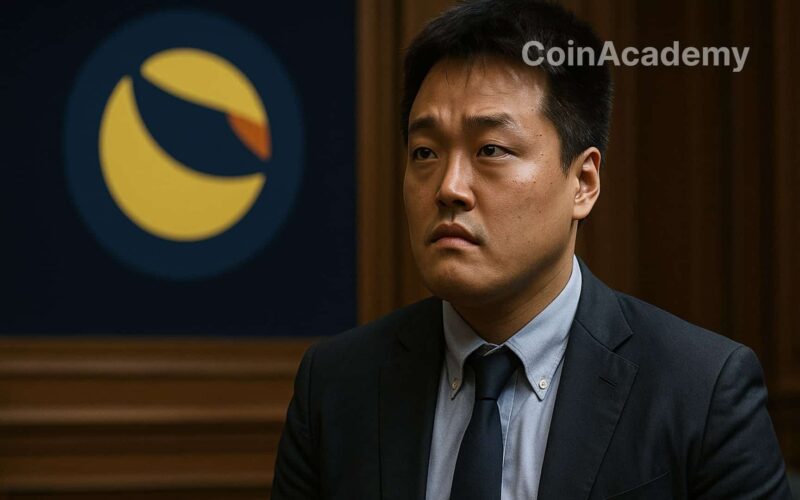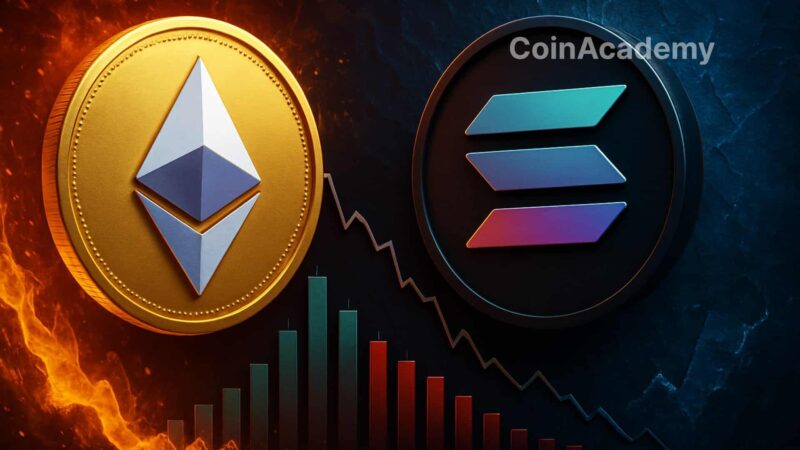Do Kwon, former CEO of Terraform Labs, is expected to plead guilty in the United States in the Terra ecosystem collapse case, three years after the incident, which could accelerate the conclusion of the trial.
The collapse of TerraUSD (UST) and its associated token Luna in May 2022 resulted in over $40 billion in losses, triggering one of the worst bear markets of the decade.
If convicted, Do Kwon faces over 100 years in prison. The details of his plea deal have not been disclosed, but he could be sentenced to a few years.
Do Kwon is Set to Plead Guilty
Three years after the collapse of the Terra ecosystem, Do Kwon, co-founder and former CEO of Terraform Labs, may drastically change his legal strategy. According to a document filed on Monday in the Southern District of New York federal court, Judge Paul Engelmayer was informed that the defendant ‘may change his plea’ and must be prepared to provide a full account of the offenses admitted.
A conference is scheduled shortly to discuss this change, potentially marking a pivotal moment in one of the most high-profile cases in the history of cryptocurrencies.
From ‘Bitcoin Killer’ to Freefall
In March 2023, Do Kwon was charged with a series of serious offenses: organized fraud, commodity fraud, electronic fraud, securities fraud, market manipulation, and money laundering. All these charges stem from his central role in Terra USD (UST), an algorithmic stablecoin touted at the time as a revolution against the digital dollar… before rapidly collapsing in May 2022.
In a matter of days, the mechanism designed to keep UST at $1 broke down. The cascading drop of the Luna token, used as collateral to stabilize UST, wiped out over $40 billion in value, taking with it thousands of investors, crypto funds, and even some industry companies.
For many, this event remains the starting point of one of the worst bear markets of the decade.
The Terra System: Promise and Disillusion
Unlike stablecoins backed by real reserves, UST used an algorithmic mechanism: if the price fell below $1, Luna was burned to decrease the supply and increase the value, and vice versa. On paper, an elegant innovation. In reality, a vulnerable house of cards susceptible to liquidity crises.
The collapse revealed the ecosystem’s total dependence on investor trust and market stability, but more importantly, the dangerous ties among all players in the crypto space. Once panic set in, no intervention could halt the spiral, causing the downfall of many giants.
Towards a Guilty Plea: A Strong Signal for the Industry
Do Kwon pleaded not guilty in January 2025, banking on a trial scheduled to start in early 2026. But this change of course, if confirmed on Tuesday, could end the process much earlier.
In a context where global regulation is tightening, with MiCA in Europe, strengthened controls in the United States, and restrictions in Asia, the Terra case could become a case study for regulators.
And Now?
If Do Kwon pleads guilty, he could negotiate a reduced sentence from 120 years to a few years in exchange for full disclosure. But the impact of this decision extends far beyond his personal fate: victims hope for compensation, regulators will see it as a victory, and the crypto industry will have to work long to erase the scar left by Terra.
From an ecosystem valued at tens of billions to a global debacle, Terra’s journey will remain a bitter lesson: in crypto, trust is built… and collapses at lightning speed.




